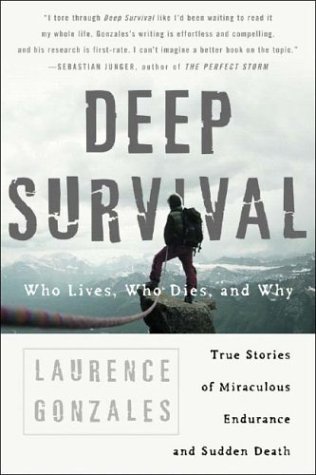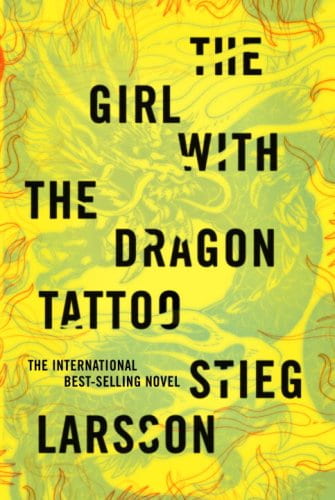
In spite of Chris's insistence that I read more Salinger than just
Catcher in the Rye, I have to admit that the deciding factor in reading Salinger's oeuvre this year had more to do with time management than peer pressure. Now, having read everything Salinger wrote that's still in print--thought
Nine Stories is due for a re-read--I wish I'd read it a lot sooner. Like, the day after I finished
Catcher. The reason, as you know if you've read Salinger's lesser known novels, is that the four slim volumes and nine short stories that make up Salinger's bibliography are connected. Read together, they paint a panoramic picture of one unique family, the Glasses, and their various psychoses and musings.
The Glasses are made up of the parents, Les and Bessie, and their seven children, Seymour, Buddy, Boo Boo, Walt, Waker, Zooey, and Franny. The stories focus primarily on the children, especially Franny, Zooey, Buddy, and--though he rarely appears in-person--Seymour, whose monk-like demeanor and inexplicable suicide make him an ever-present figure in the minds of his siblings. In addition to being related, the Glass children also share another bond: all seven of them appeared as panelists on a quiz show called
It's a Wise Child, where callers would quiz the abnormally bright children about whatever was on their mind.
Franny and Zooey, the first chronologically of the books I'm reviewing here, is split into two sections of unequal length. Section one, Zooey, follows Zooey Glass as she arrives home from school and meets up for lunch with her beau, Lane. Zooey continually subverts Lane's conversation--he wants to talk about a philosophy paper he wrote for class--to talk about a book she's reading called
The Way of the Pilgrim.
The Way of the Pilgrim (a real book, incidentally) centers around a monk traveling on foot over Russia, repeating the Jesus Prayer--Lord, have mercy on me, a sinner--and teaching it to others in an effort to get closer to God. The second half takes place at the Glass's house, were Zooey antagonizes his mother before going into the living room to antagonize Franny who, by the way, passed out in the bathroom at the end of her date for less-than-obvious reasons.
Franny and Zooey is tough to break down. There isn't much plot and there isn't an easily extractible message. Zooey thinks Franny's obsession with the Jesus Prayer is silly and possibly dangerous, and she, naturally, disagrees. The second book is composed primarily of two arguments, one between Franny and Zooey, and one between Zooey and his mother, and they both reveal essentially the same facet of Zooey. That is, he's selfish, sometimes cruel, insecure, and that, underneath that, he values his family, illustrated in both arguments, first subtly by a few conciliatory words toward his mother and secondly more overtly by calling Zooey pretending to be Buddy, who is second only to Seymour in the esteem of his siblings, and eviscerating himself in the guise of his brother.
Raise High the Roof Beam Carpenter is the second Glass story I read, and it's probably my favorite. Although it seems like a John Grisham novel plot-wise in comparison to
Franny and Zooey, it's pretty spare as well. It follows Buddy, narrating in first-person, as he attends the event that would be Seymour's wedding if Seymour had shown up. As it happens, he doesn't and Buddy unwittingly ends up in the car with the bride's family, including her sister, who's livid, and a deaf-mute uncle, who's one of the best minor characters in all of Salinger. They drive around town, trying to figure out what to do, until Buddy finally, perhaps unwisely, suggests that they go to the apartment that he shares with Buddy while not away with the military. They arrive to find the apartment empty, and the day passes by until everyone is gone but the deaf-mute uncle, happy and thankful just to be out and about.
Raise High the Roof Beam Carpenters is essential in the Glass chronology primarily because it sets up Seymour's honeymoon suicide in
A Perfect Day for Bananafish, but it also seems to me that the old uncle is one of the most important symbols in the Glass series. He's portrayed throughout the story as existing on the fringes, clear on the general ideas of what's going on but fuzzy on the details. He's also constantly, relentlessly happy, always smiling and even extending a silent camaraderie to Buddy--notably, the only non-Glass shown to have a positive relationship to a Glass. Perhaps Salinger is drawing a contrast here, placing the uncle as a counterpoint to the Glasses, whose grasp on the details is impeccable but who can't seem to see the bigger picture. Franny, Zooey, and Buddy are all fixated on something: Franny on himself and his family, Buddy on Seymour, Zooey on the Jesus Prayer, but they all see things in microscopic vision, and are all, for the most part miserable.
Seymour seems to be the odd exception to this rule, which leads neatly into
Seymour: An Introduction.
Seymour: An Introduction probably has the least plot of any book I've ever read. In fact, saying it has a plot at all is a bit of a stretch. It's narrated by Buddy, but rather than following a linear timeline, Buddy moves from anecdote to philosophical theory to personal reminiscences, all in an ultimately vain attempt to understand the inscrutable Seymour. Seymour, who memorized Sappho, who never got mad, who loved everyone, who seemed like a Zen master to his siblings. Seymour, who killed himself in his hotel room on his honeymoon. Seymour is presented as a unified person, the one Glass where all the pieces fit, and yet, when it all comes down to it, he's as much a cipher as the narcissistic but caring Zooey or the kind but condescending Franny.
In
Seymour: An Introduction, Buddy talks about the only non-Glass book Salinger ever published,
Catcher in the Rye, claiming to have written it himself, so many critics have understandably picked Buddy as Salinger's avatar. I, on the other hand, tend toward Seymour the inscrutable. Salinger, the student of human nature who doesn't like people. One of the most famous authors alive who hasn't published anything since Vietnam ended. What could be more interesting, more tempting to spill ink on? Perhaps when Salinger finally dies, the works he's said to have color-coded and prepared for publication will be made available. Maybe we'll finally know why Seymour killed himself, why Salinger stopped publishing, and if the Jesus Prayer worked. But maybe we won't, and that's OK. Everyone should read Salinger anyway.
 The year is over, the votes are in! Here, for your perusal, are the ten best books that I read in 2009, explained for you in easy-to-read, under-140 character Twitter style:
The year is over, the votes are in! Here, for your perusal, are the ten best books that I read in 2009, explained for you in easy-to-read, under-140 character Twitter style:









